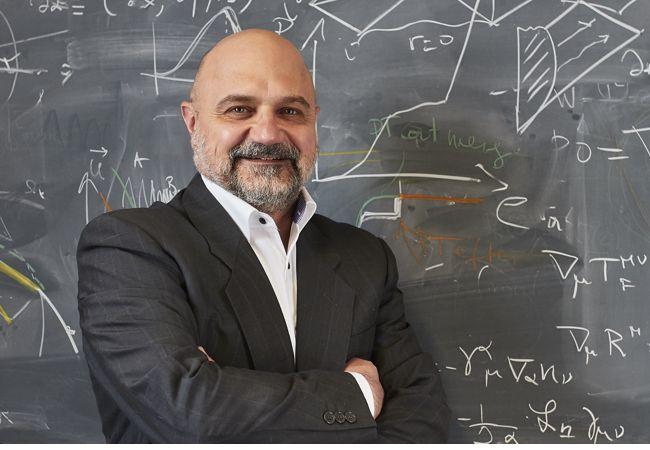The Goethe University physics professor to be Andrews Professor of Astronomy at Dublin Trinity College

Credit: Jürgen Lecher, Goethe University
“The Andrews Professor for Astronomy is a tremendous recognition of the excellence achieved in astrophysics research at Goethe University,” says Luciano Rezzolla. “It’s simultaneously a recognition of a paradigm change that has also taken place in Frankfurt, in which theoretical astrophysics and theoretical physics are being combined more and more in the quest for a deeper understanding of the universe. I am very happy that together with my team and many other colleagues in Frankfurt and Dublin, I have been able to use this potential to continue improving our research.
“This title is a great honour, both for Luciano Rezzolla and for his team at the Institute for Theoretical Physics”, says Simone Fulda, Vice President for Research and Academic Infrastructure at Goethe University. “The award illustrates the high value placed on physics within Goethe University research. We are quite proud of this and extend Luciano Rezzolla our warmest congratulations.”
The Andrews Professor for Astrophysics was established in 1774. The politician and provost of Trinity College, Francis Andrews, bequeathed £3,000 to build a new observatory in Dunsink. The first Andrews Professor was the mathematician and astronomer Henry Ussher, who was appointed in 1783. Between 1791 and 1921 the holder of the chair was also the “Royal Astronomer of Ireland”. After remaining vacant between 1921 and 1984, the position was subsequently re-established as an honorary chair. With this appointment, Rezzolla follows in the footsteps of Sir William Rowan Hamilton, who held the position from 1827 to 1865, and after whom Hamiltonian mechanics was named.
In addition to this honour, Rezzolla gained worldwide media attention in April of this year. As principal investigator of the “Black Hole Cam Project” (BHC Project), he and his colleagues made the observation of the hot plasma ring surrounding the black hole in the centre of the Galaxy M87 visible for the first time. The National Science Foundation, the US government agency for research funding, recognized the first image of black hole with a new prize: in 2019, the Diamond Achievement Award was given to the international team of the Event Horizon Telescope collaboration, of which Professor Rezzolla is also a member. Rezzolla and his team at the Institute for Theoretical Physics were also awarded the Frankfurt Physics Science Prize.
###
Background information: https:/
An image can be downloaded here: http://www.
Credit: Jürgen Lecher, Goethe University
Further information: Professor Luciano Rezzolla, Institute for Theoretical Physics, Faculty of Physics, Riedberg Campus, Telephone: +49 69 798 47871, [email protected]; https:/
Current news about science, teaching, and society can be found on GOETHE-UNI online (http://www.
Goethe University is a research-oriented university in the European financial centre Frankfurt am Main. The university was founded in 1914 through private funding, primarily from Jewish sponsors, and has since produced pioneering achievements in the areas of social sciences, sociology and economics, medicine, quantum physics, brain research, and labour law. It gained a unique level of autonomy on 1 January 2008 by returning to its historic roots as a “foundation university”. Today, it is one of the three largest universities in Germany. Together with the Technical University of Darmstadt and the University of Mainz, it is a partner in the inter-state strategic Rhine-Main University Alliance. Internet: http://www.
Publisher: The President of Goethe University Editor: Dr Anke Sauter, Science and Humanities Editor, International Communication, PR & Communication Department, Theodor-W.-Adorno-Platz 1, 60323 Frankfurt am Main, Tel: +49(0)69 798-13066, Fax +49(0)69 798-761 12531, [email protected].
Media Contact
Luciano Rezzolla
[email protected]
49-697-984-7871
Original Source
https:/




